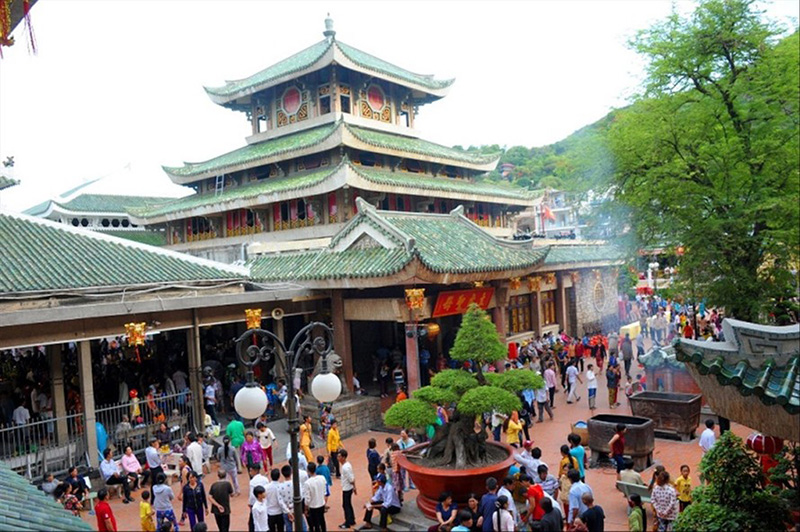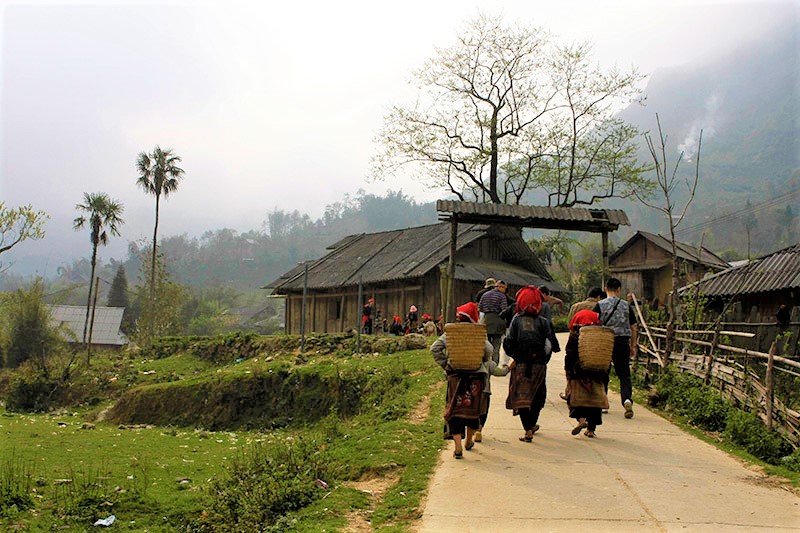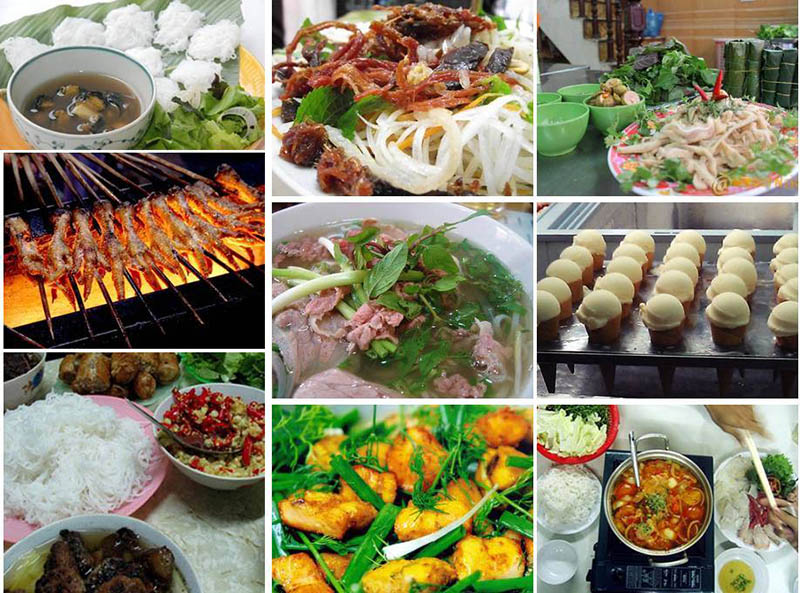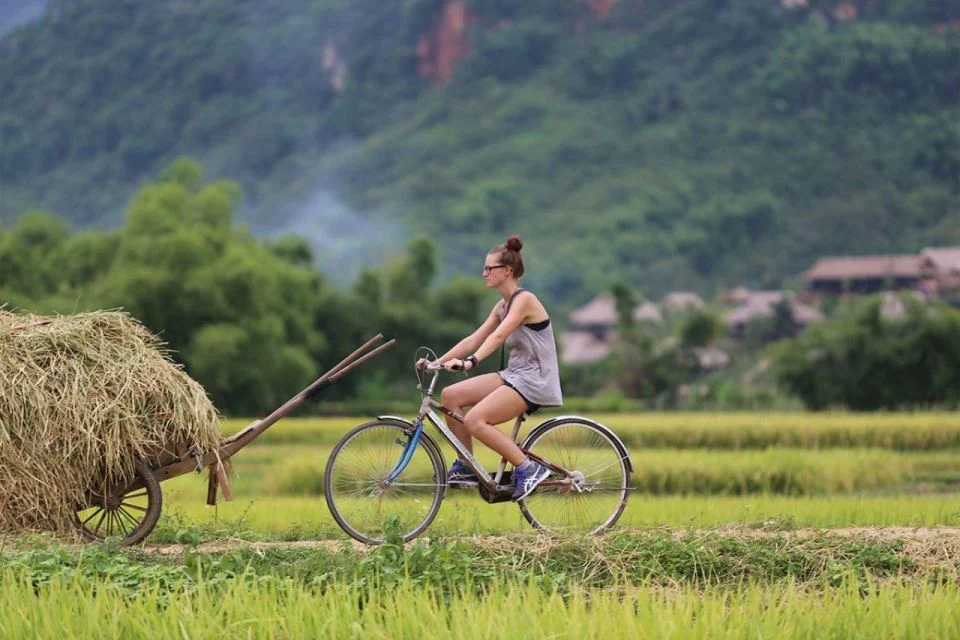Vietnam with its thousands of years of history and breathtaking landscapes, has established itself in recent decades as one of the most popular tourist destinations in South-East Asia. From the green rice terraces of the north to the golden beaches of the south, via ancient cities and modern metropolises, the country offers an incredible variety of experiences for travellers.
However, as tourism grows, so does awareness of the importance of travelling responsibly and sustainably. This article explores the concept of responsible tourism in Vietnam, analysing current trends, challenges and opportunities, and providing practical advice for travellers wishing to explore this fascinating country in an ethical and conscious manner.
The tourism boom in Vietnam
Vietnam’s tourism sector has experienced tremendous growth over the past three decades. From a modest number of international visitors in the 1990s, the country has experienced an unprecedented surge, reaching a record 18 million tourists in 2019. This boom has been fuelled by several factors: the diversification of tourists’ source markets, massive investment in infrastructure, greater openness to the outside world and, last but not least, the country’s natural and cultural beauty.
The COVID-19 pandemic temporarily interrupted this growth trajectory. However, the sector has shown remarkable resilience. With the gradual reopening of borders in 2022, tourism has begun to recover.
Forecasts for the future are optimistic. This recovery is supported by a renewed tourism marketing strategy, investment in sustainable infrastructure and an increasingly diversified tourism offer that emphasises authenticity and sustainability.
Sustainable tourism: a conscious approach to travel
Responsible tourism is an approach to travel that aims to create better places to live and travel. This concept goes beyond the simple idea of a holiday, embracing a philosophy that seeks to minimise the negative impacts of tourism on the environment and local communities, while maximising the economic and social benefits for host populations.
The key principles of responsible tourism include:
- Respect for the environment: conservation of natural resources, reduction of pollution and protection of biodiversity.
- Support for the local economy: preference for local services and products, ensuring that a greater percentage of tourism expenditure remains in the community.
- Cultural respect: preservation and enhancement of local traditions and cultural heritage.
- Social equity: ensuring fair working conditions in the tourism sector and promoting the inclusion of local communities in decision-making processes.
- Education and awareness-raising: inform and involve both tourists and local communities on sustainable tourism practices.
In the context ofovertourism, a phenomenon that occurs when a destination attracts more visitors than it can sustain, responsible tourism becomes even more important. Overtourism can lead to a number of problems, including environmental degradation, loss of cultural authenticity, increased cost of living for residents, and overcrowded infrastructure.
At the moment, Vietnam is not facing a generalised problem of overtourism as observed in some European destinations or neighbouring countries such as Thailand. However, some popular locations such as Ha Long Bay, Hoi An and Sapa have started to show signs of excessive tourist pressure in the high season. This has prompted the government and tour operators to implement strategies to better distribute tourist flows and promote more sustainable practices.
The challenge for Vietnam is to manage the expected growth in tourism in a way that preserves what makes the country unique and attractive, while avoiding the negative effects ofovertourism. In this context, responsible tourism emerges as a key solution, offering a model of tourism development that can bring long-term benefits to both visitors and local communities.
Tips for responsible tourism in Vietnam
Respect the local culture
Vietnam is a country with a rich history and deeply rooted traditions. To practise truly responsible tourism, it is essential to show respect for the local culture. Start by learning about Vietnamese customs and etiquette before your trip. For example, in Vietnam, the concept of ‘losing face’ is very important, so avoid situations that might embarrass yourself or others in public.
When visiting sacred places such as pagodas and temples, follow local etiquette. Dress appropriately, covering your shoulders and knees. Remember to remove your shoes before entering sacred areas and never point your feet towards Buddha statues as it is considered disrespectful. Always ask permission before taking photographs, especially of people.

Learn some basic phrases in Vietnamese. Even a simple ‘xin chào’ (hello) or ‘cảm ơn’ (thank you) can make a big difference in everyday interactions. Vietnamese people greatly appreciate visitors’ efforts to communicate in their language, even if only at an elementary level. Other useful phrases include ‘xin lỗi’ (sorry) and ‘bao nhiêu tiền?’ (how much does it cost?).
Consider participating in homestay experiences, especially in rural areas. These offer a unique opportunity to immerse yourself in the local culture and directly support Vietnamese families. However, be sensitive to cultural differences and respect the privacy and customs of your hosts.

When interacting with ethnic minorities, especially in the northern mountainous regions such as Sapa, be especially respectful. Avoid treating these communities as tourist attractions and be aware that some practices, such as photography, could be considered intrusive. Participate in tours led by local community members to ensure that your interactions are respectful and beneficial to the community.
Support the local economy
Responsible tourism in Vietnam involves actively supporting the local economy. Start by choosing locally managed accommodation instead of large international chains. Family guesthouses and local boutique hotels not only offer a more authentic experience, but also ensure that a greater percentage of your spending stays in the community.
When it comes to eating, opt for local restaurants and street food instead of international chains. Vietnam is famous for its street food, and eating at markets and stalls is a great way to support small local entrepreneurs. Try regional specialities such as pho in Hanoi, banh mi in Hoi An or com tam in Ho Chi Minh City.

As for shopping, look for authentic handicrafts instead of mass-produced souvenirs. Visit local markets and handicraft shops, where you can find handmade textiles, ceramics, lacquerware and other traditional products. Be prepared to pay a fair price for these items, recognising the work and skill behind them.
Choose local guides and tour operators for your excursions. This not only provides direct income to communities, but also offers a more authentic and in-depth perspective on local culture and history. In places like the Mekong Delta or Ha Long Bay, opt for small group tours run by local operators who follow sustainable practices.
Consider attending workshops and courses that allow you to learn local skills. Cooking lessons, handicraft classes or traditional farming sessions not only enrich your experience but also provide direct support to local artisans and teachers.
Protecting the environment
Environmental protection is a crucial aspect of Sustainable tourism in Vietnam. When exploring wilderness areas, always follow the ‘leave no trace’ principle. This means taking away all your rubbish, staying on marked trails and not disturbing wildlife or vegetation. In places like Phong Nha-Ke Bang National Park or Cuc Phuong Nature Reserve, carefully follow ranger guidelines to minimise your impact on the ecosystem.
Choose certified eco-tours and excursions. For example, in Ha Long Bay, opt for cruises that follow sustainable practices, such as waste water treatment and the use of renewable energy. In mountain areas such as Sapa, participate in treks led by local guides who promote sustainable tourism practices.
Consider participating in environmental volunteer projects during your stay. However, be sure to choose well-run projects that have a real and lasting positive impact.
Use sustainable transport
The way you travel within Vietnam can have a significant impact on the sustainability of your trip. For long distances, consider train instead of plane whenever possible. The railway line from Hanoi to Ho Chi Minh City, known as the ‘Reunification Express’, offers a unique and scenic travel experience with a much smaller carbon footprint than flying.

In cities, use public transport. Many Vietnamese cities are developing bike-sharing systems and bicycle rental is widely available in places like Hoi An and Hue. For shorter trips, walking is often the best way to explore, especially in the historical districts of cities.
Consciously plan your travel itinerary
Itinerary planning plays a key role in responsible tourism in Vietnam. A well-structured itinerary not only enhances the traveller’s experience, but can also contribute significantly to distributing the benefits of tourism more fairly and reducing pressure on popular destinations.
Responsible planning also takes seasonality into account. Travelling during the off-season can reduce pressure on popular destinations and offer a more authentic experience. It can also help distribute the economic benefits of tourism more evenly throughout the year.
Another idea is to rely on tour operators in Vietnam specialised in responsible tourism. These operators are committed to organising experiences that respect the environment, support local communities and promote sustainability. Choosing tour operators with these characteristics can ensure that the trip is not only enjoyable, but also ethical and sustainable.
Managing resources responsibly
Being aware of your resource consumption is an important aspect of responsible tourism. Save energy by switching off lights and air conditioning when you leave your hotel room.
Pay attention to your water consumption, especially in rural areas where water resources may be limited. When buying food and drinks, try to avoid imported products in favour of local ones. This not only supports the local economy but also reduces the carbon footprint associated with transporting goods over long distances.
Conclusion
Responsible tourism is not only about your actions during the trip but also what you take home in terms of knowledge and awareness. Take advantage of opportunities to learn more about Vietnam’s culture, history and environmental challenges. Visit museums, participate in cultural tours and interact with local communities to gain a deeper understanding of the country.
Share your responsible tourism experiences with other travellers, both during your stay and on your return home. Use social media to promote sustainable travel practices and highlight positive initiatives you encountered during your trip to Vietnam.
